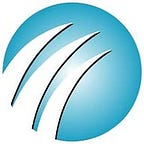Jargon? Electricity bills unreadable for many Australians.
A news article from the ABC from July this year raises an important issue for people with print disabilities. ‘Electricity bills unreadable for thousands of Australians amid a cost-of-living crisis’ by Nas Campanella and Emily Laurence. 27 July 2023.
The ABC article points out that many utilities companies send out their bills in a PDF format that doesn’t work with screen readers. Blind people and people with low vision are left unable to read their bills.
The article shares stories from blind and low vision Australians who are frustrated they can not read their electricity bills and credit card statements “like any other Australian.” They describe suffering loss of independence and privacy as a result. One person points out that, in a cost-of-living crisis, people have the right to information that will help them save money. Like switching to a new plan.
Receiving written information you can not read is a problem faced by many people. It is people who are blind and vision impaired, people who are deafblind and also people with cognitive disability. In addition it is people with poor educational outcomes, those with acquired disabilities, older people, Aboriginal and Torres Strait Islander people and people with English as a second language, some with only an oral language knowledge with no print literacy skills. And all of us when we are stressed, anxious or worried about how we will manage our bills, particularly during the current cost of living crisis.
Cathy presented along with Dr Meredith Prain of Able Australia at the 2023 Round Table Conference on Information Access for People with Print Disabilities. The topic was ‘Accessible formats — steps to access and inclusion: What is still missing?’ They talked about all the other people, besides people who can use a screen reader, who are not included when only a screen reader is considered.
As mentioned in the ABC article, digital text can be converted to different accessible formats that work with screen readers. Now people who are blind or vision impaired can read it. But, this is only one step towards genuine access and inclusion. People with low literacy are still not able to access the information. You may be blind and have low literacy. Even using your screen reader, the information may not be written in words you can understand.
44% of Australians do not have the literacy to manage a range of day-to-day reading tasks. (Australian Bureau of Statistics) With the shift to online billing and use of the internet to compare and contrast information (such as different electricity plans), there is a further issue of digital inclusion. Only 2 in 5 people where English is their first language are able to use the internet at a level of competency to find and locate information, to then use it to work out what they need to do. Or consider the Australian Digital Inclusion Index which states 1 in 4 people are digitally excluded.
In the ABC article I also learned that there is a new Better Bills Guideline from the Australian Energy Regulator (AER). All energy retailers are required to follow these new rules for making bills easier to understand.
The ABC points out that the new guidance contains no mention of customers who are blind or vision-impaired.
Indeed, the guidelines do not mention people with disabilities or low literacy at all. They do not say you must offer screen-readable or paper copies of bills to customers.
I also found that the AER’s example ‘Better Bill’ still requires a Year 8 equivalent reading level: 44% of Australians can not read at this level. The example bill is very busy, with text in multiple boxes and columns and a graph, assuming every reader knows how to read and interpret them. It uses complex language like “usage estimation,” “payment assistance” and “conditions may apply.”
What do you think about these new ‘Better Bills?’ Perhaps they are better than before, if you have good literacy. But once again, people with low literacy and print disabilities are left behind. At a time like this, when we are all stressed about making the best choices for our money, every Australian has the right to information they can read and understand about the things they pay for.
Chat to us about how we can asisst you to better engage with your customers by removing jargon, complex text and layout for effective communication for everyone.
Sierra Morabito
Specialist content writer
Access Easy English
Office phone: 0466 579 855
Email: sierra@accesseasyenglish.com.au
Website: https://accesseasyenglish.com.au/
Facebook: https://www.facebook.com/accesseasyenglish
LinkedIn: Cathy Basterfield
Twitter: @accesseasyengli
